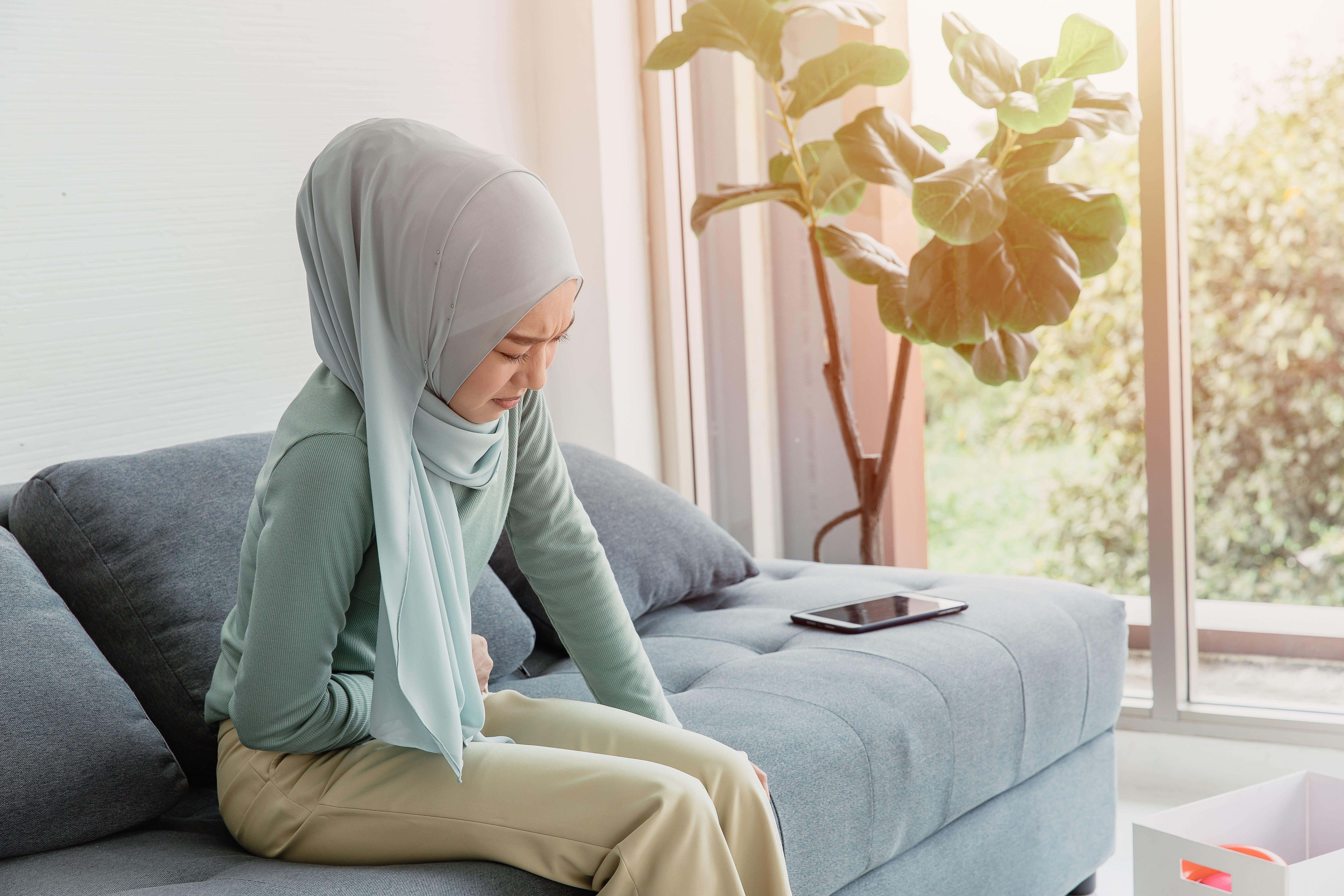‘Millions of women and girls suffer severe pain’ during periods – research finds
Health charity Wellbeing of Women say symptoms are normalised far too often.

Your support helps us to tell the story
This election is still a dead heat, according to most polls. In a fight with such wafer-thin margins, we need reporters on the ground talking to the people Trump and Harris are courting. Your support allows us to keep sending journalists to the story.
The Independent is trusted by 27 million Americans from across the entire political spectrum every month. Unlike many other quality news outlets, we choose not to lock you out of our reporting and analysis with paywalls. But quality journalism must still be paid for.
Help us keep bring these critical stories to light. Your support makes all the difference.
Almost half of people who menstruate experience period pain that is ‘severe’ – and 51% feel their symptoms aren’t taken seriously by healthcare professionals, new research has found.
The survey, commissioned by health charity Wellbeing of Women, asked 3,000 women and girls in the UK about their experience. A massive 86% of those surveyed said they have had mental health problems in relation to their period.
Many said they had ‘debilitating pain’, bleeding for six weeks and some waited decades for a diagnosis of a health condition, in the survey of 16 to 40-year-olds across all regions, backgrounds and ethnicities.
Women and girls have been “dismissed for far too long”, said Professor Dame Lesley Regan, chair of Wellbeing of Women. “It’s simply unacceptable that anyone is expected to suffer with period symptoms that disrupt their lives.”
Painful, irregular and heavy periods can be symptomatic of serious gynaecological conditions.
Signs of the chronic condition endometriosis – when the endometrial lining grows outside of the uterus – include debilitating period pain.
Similarly, adenomyosis – a condition where the uterus lining starts growing into the muscle of the womb wall – is normally identifiable by painful periods and heavy bleeding.
Painful periods may also be a sign of fibroids, non-cancerous growths that develop in or around the womb.
Despite around two in three women developing at least one fibroid at some point in their life, according to the NHS, only 38% of those surveyed knew about the condition.
Awareness for adenomyosis was even lower, at only 10%.
The research found only 14% have tried medication to reduce heavy bleeding, despite treatments, like tranexamic acid which reduces blood loss significantly, being available.
Caroline Nokes, Conservative MP and chair of the Women and Equalities Committee which is conducting an inquiry into reproductive and gynaecological health, said: “There is a terrible phrase, ‘Well, it’s just a period, why are you making a fuss about that? Can’t you just get on with it?’
“Yet many women and girls are experiencing horrendous period symptoms and gynaecological conditions.
“These are impacting the health of women and girls, and preventing them from taking part in work, school, sport and everyday life.
“Endometriosis alone affects 1.5 million women in the UK and costs the economy £8.2 billion – now is the time for change.”
Wellbeing of Women have launched a new campaign called ‘Just A Period’ – aiming to address the normalisation of worrying period symptoms.
NHS GP Dr Aziza Sesay said: “In my clinic, I see teenagers who are anaemic, who miss several days of school, and they don’t realise that this isn’t normal. They’ll literally use the words, ‘It’s just a period’.
“It’s vital that we raise awareness and education on periods. We need to stop the narrative that heavy and painful periods are something we have to live with.
“I want women and girls to have the knowledge to advocate for themselves, to push for more investigations, and to push for a diagnosis and treatment so that they don’t have to live with debilitating symptoms.”
Clare Nasir, Channel 5 weather broadcaster and host of BBC Under the Weather broadcast, was diagnosed with fibroids and had an myomectomy – an operation to remove them.
“With fibroids, there’s the physical pain but also the mental pain, I was struggling to conceive but looked about five months pregnant. People would write into the show asking why I hadn’t declared my pregnancy. It took a toll on my mental health.
“When I eventually had my myomectomy, it was life changing. I’m passionate about raising awareness so that other women don’t feel alone and or suffer unnecessarily.”